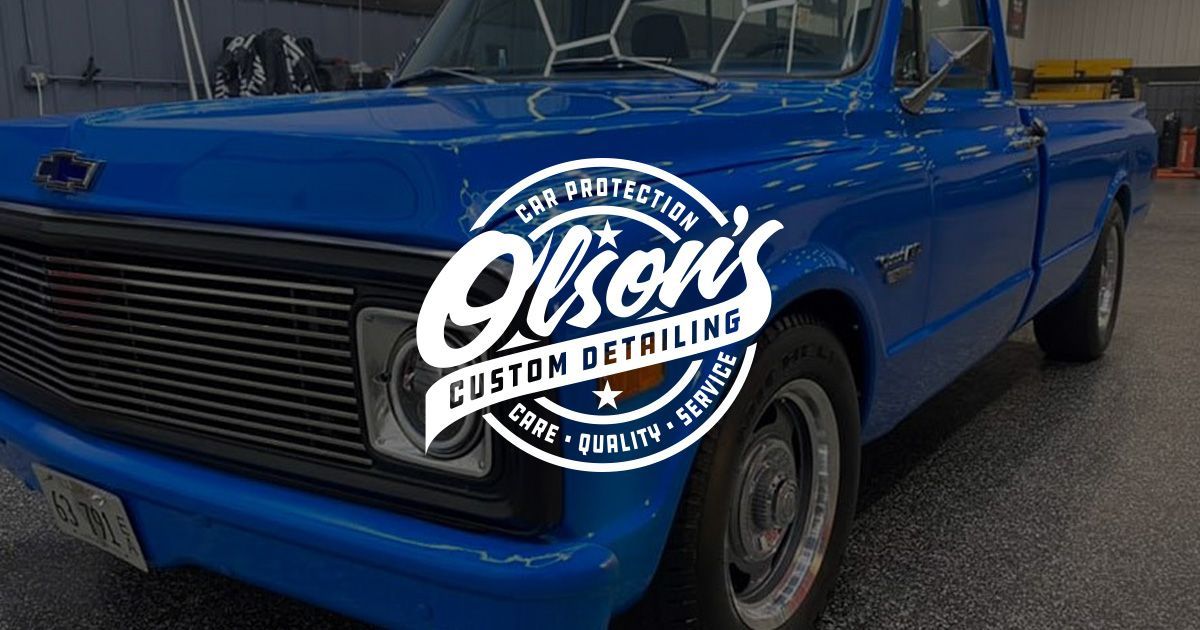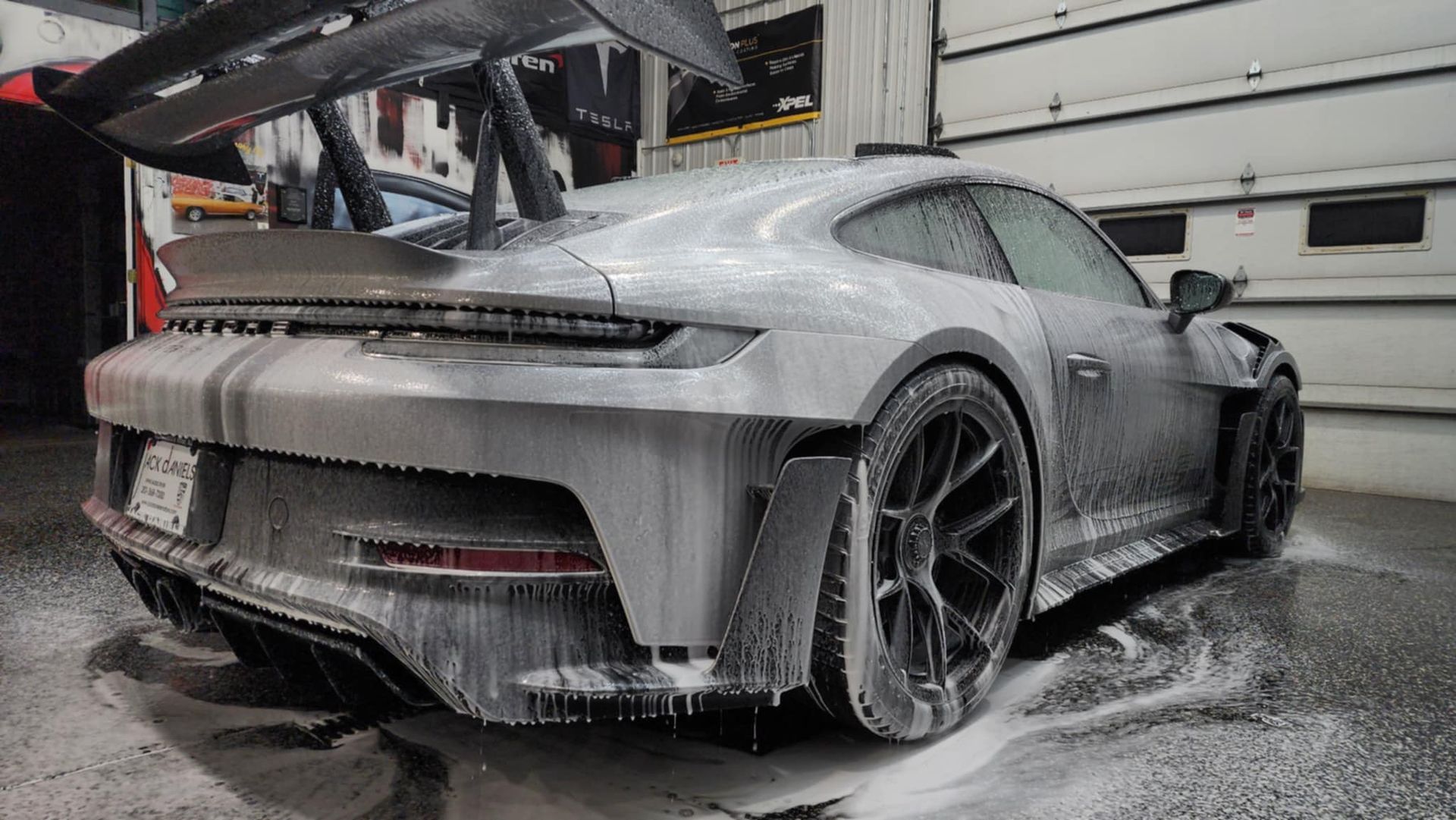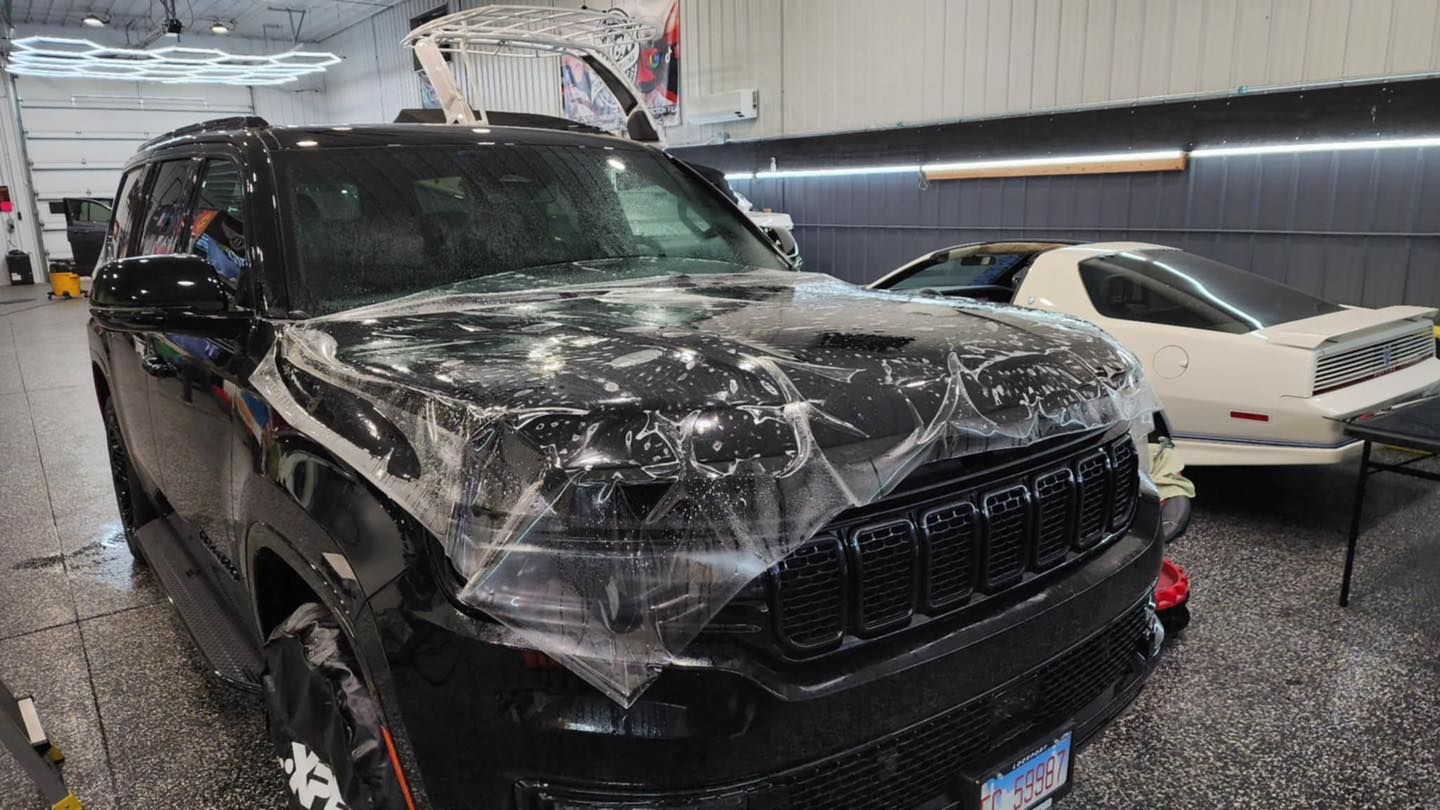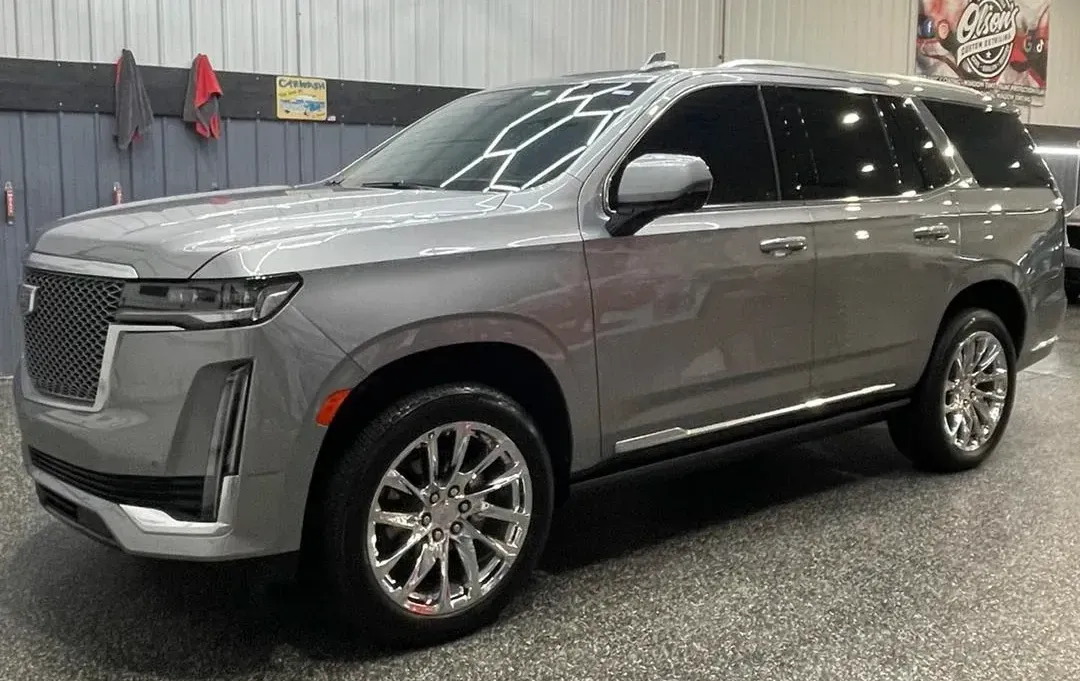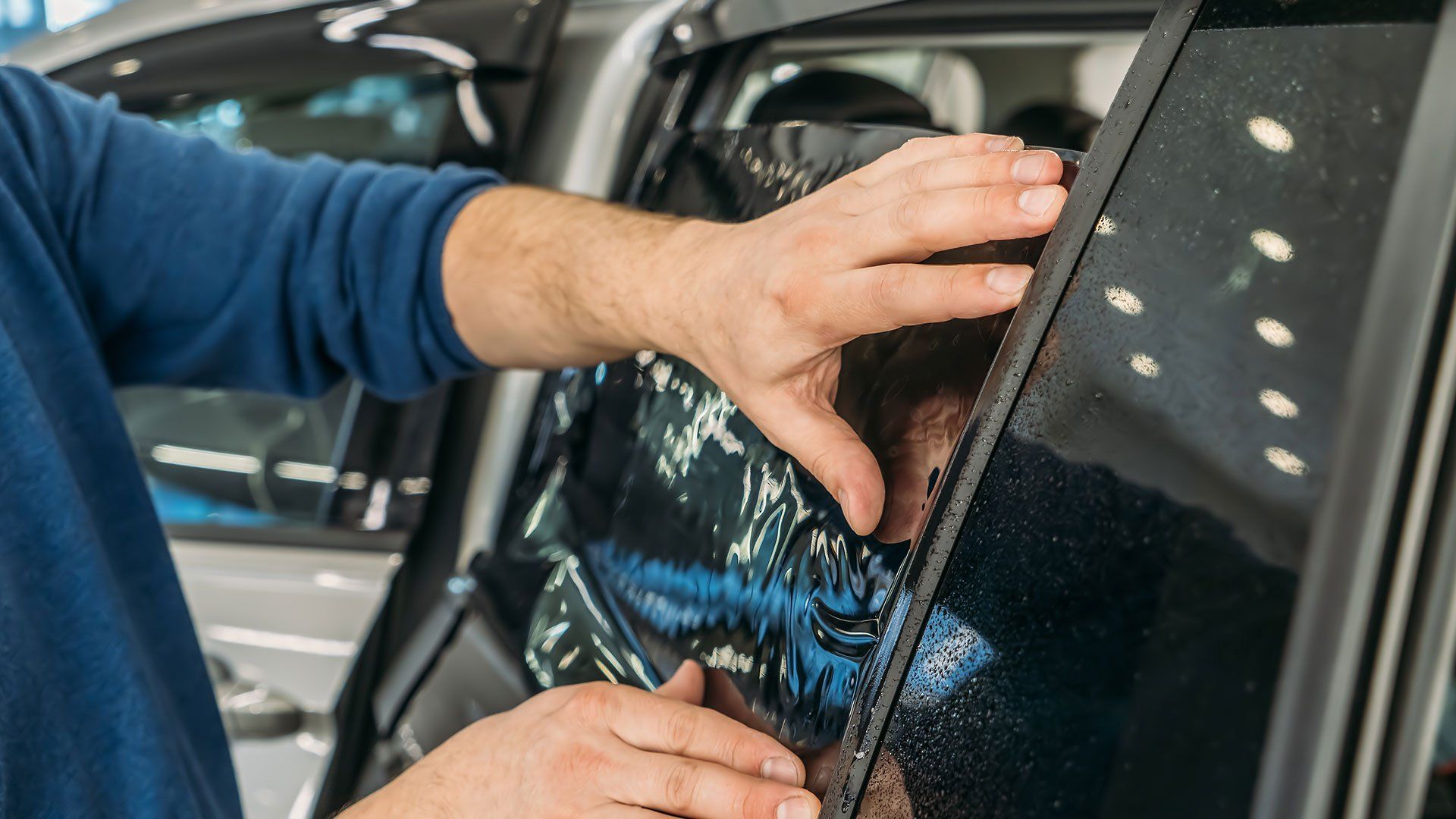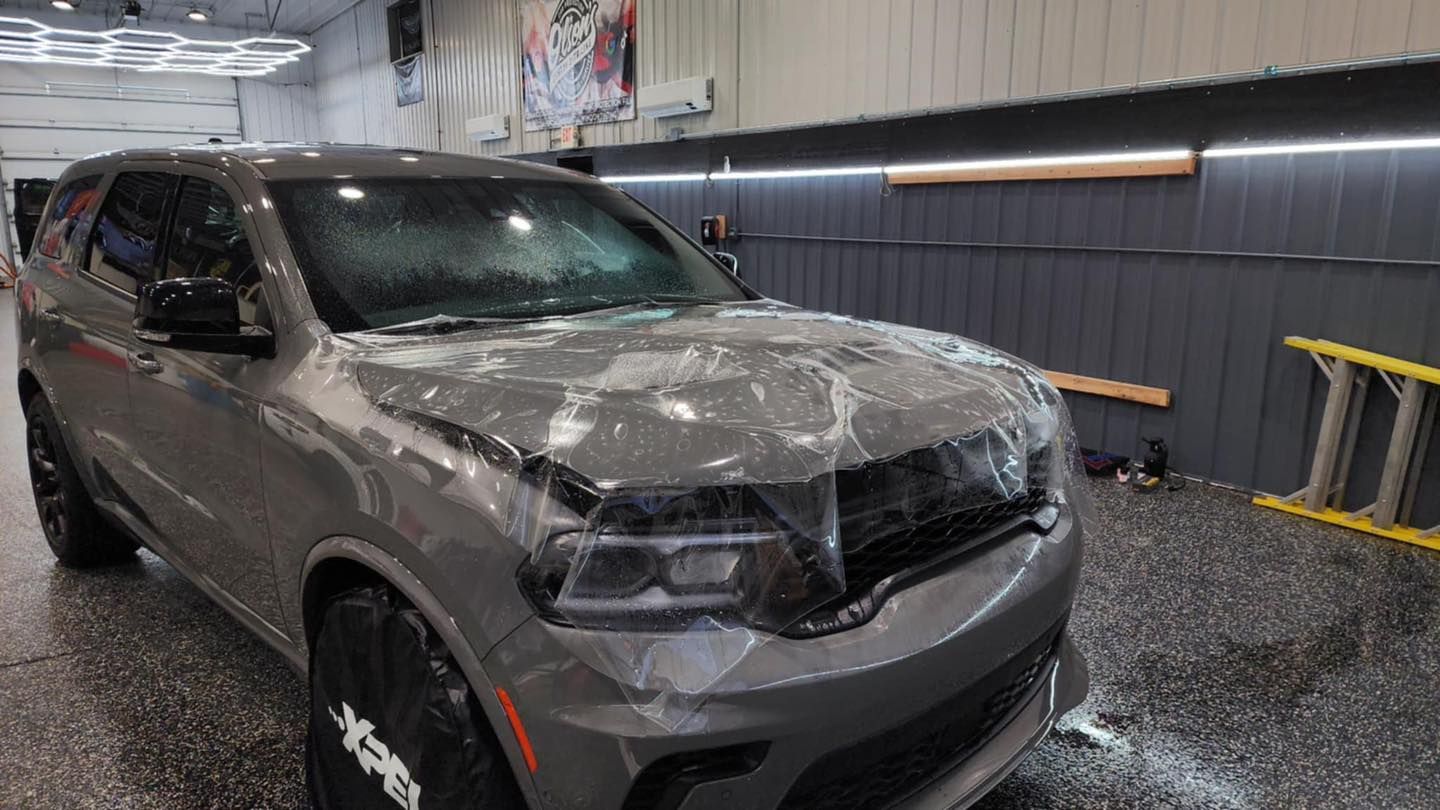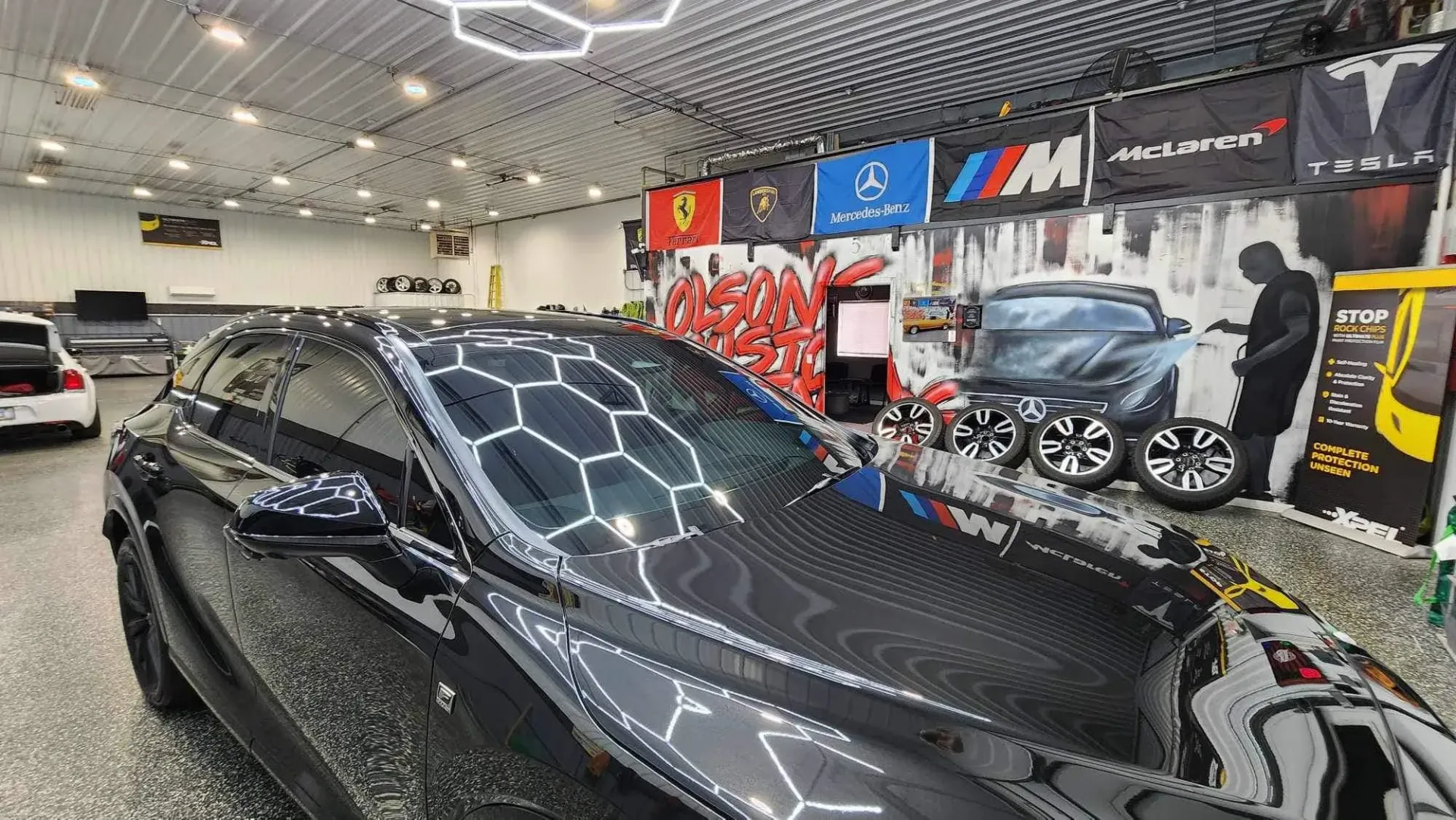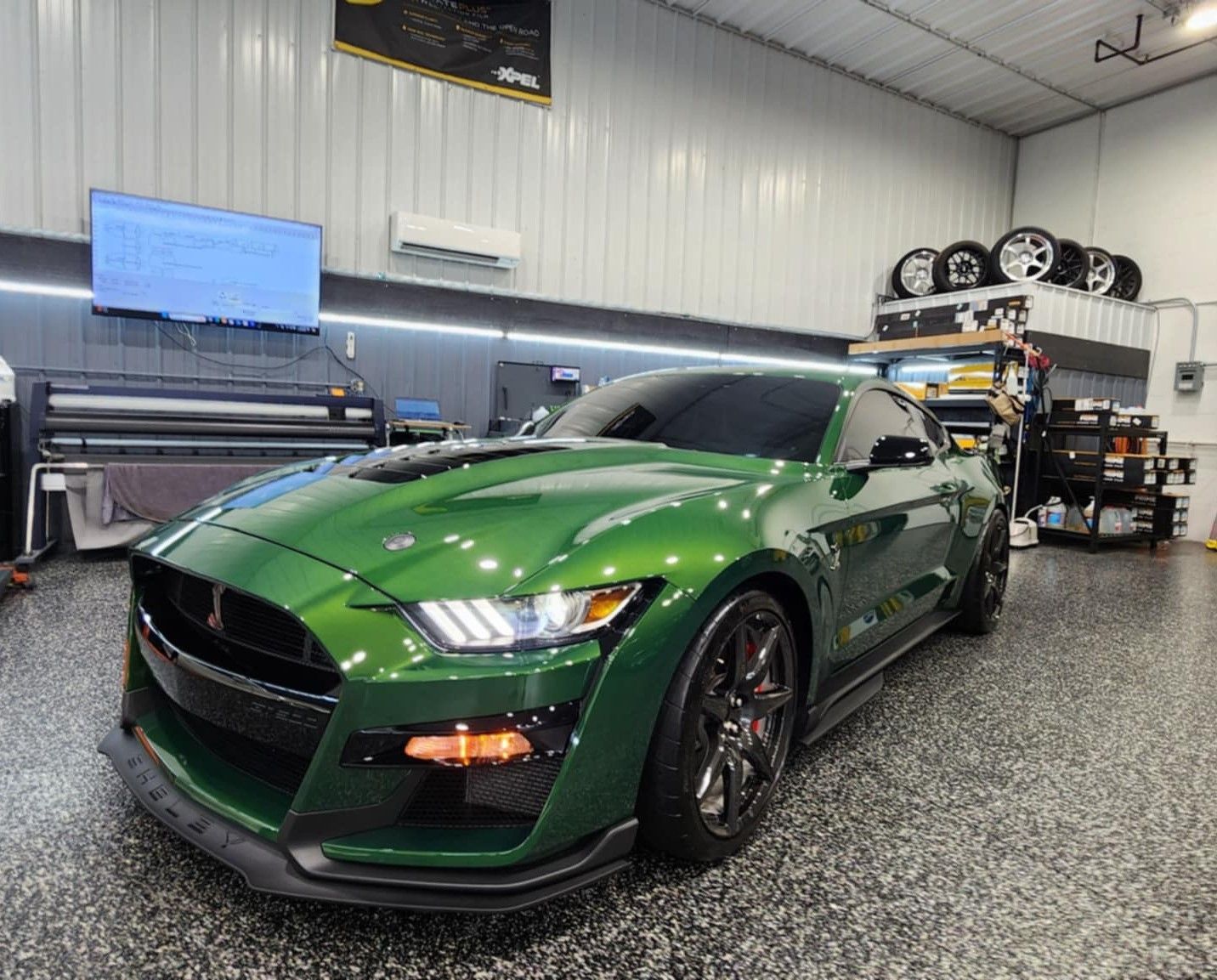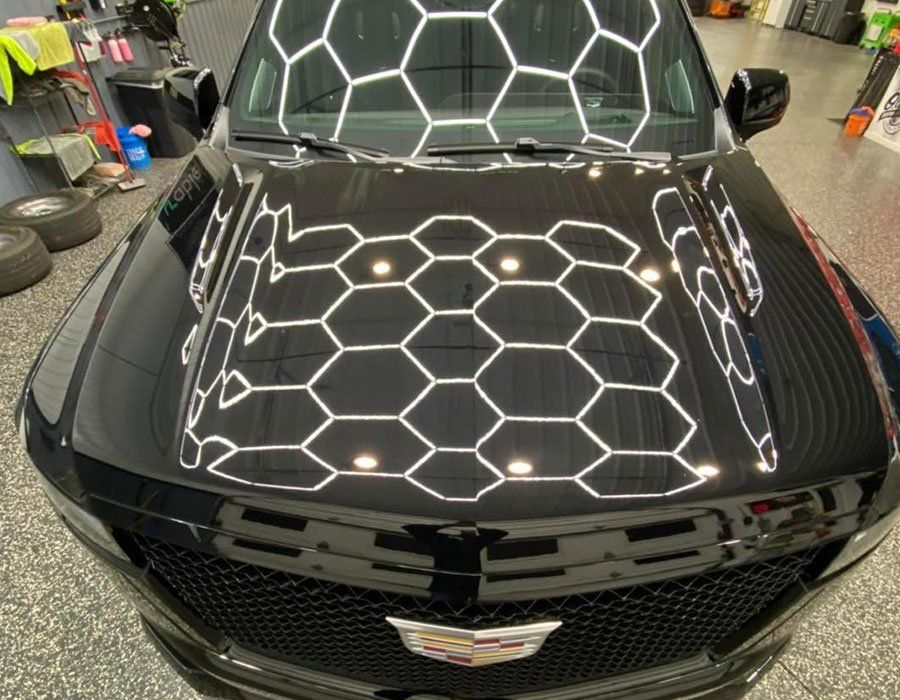When it comes to maintaining the beauty and longevity of your vehicle, few things can compete with the power of advanced ceramic coatings. You might think a simple wash and wax is enough, but environmental factors like harmful UV rays, dirt, grime, and water stains constantly threaten your vehicle's appearance. Ceramic coatings provide a powerful line of defence that not only enhances your car's looks but also makes cleaning a breeze.
In this detailed guide, we'll explore what makes ceramic coatings so useful and how you can maximize their potential for your car care projects. We’ll also delve into advanced application techniques, the science behind ceramic coatings, and the long-term benefits they offer, so you can master these methods to keep your vehicle looking pristine.
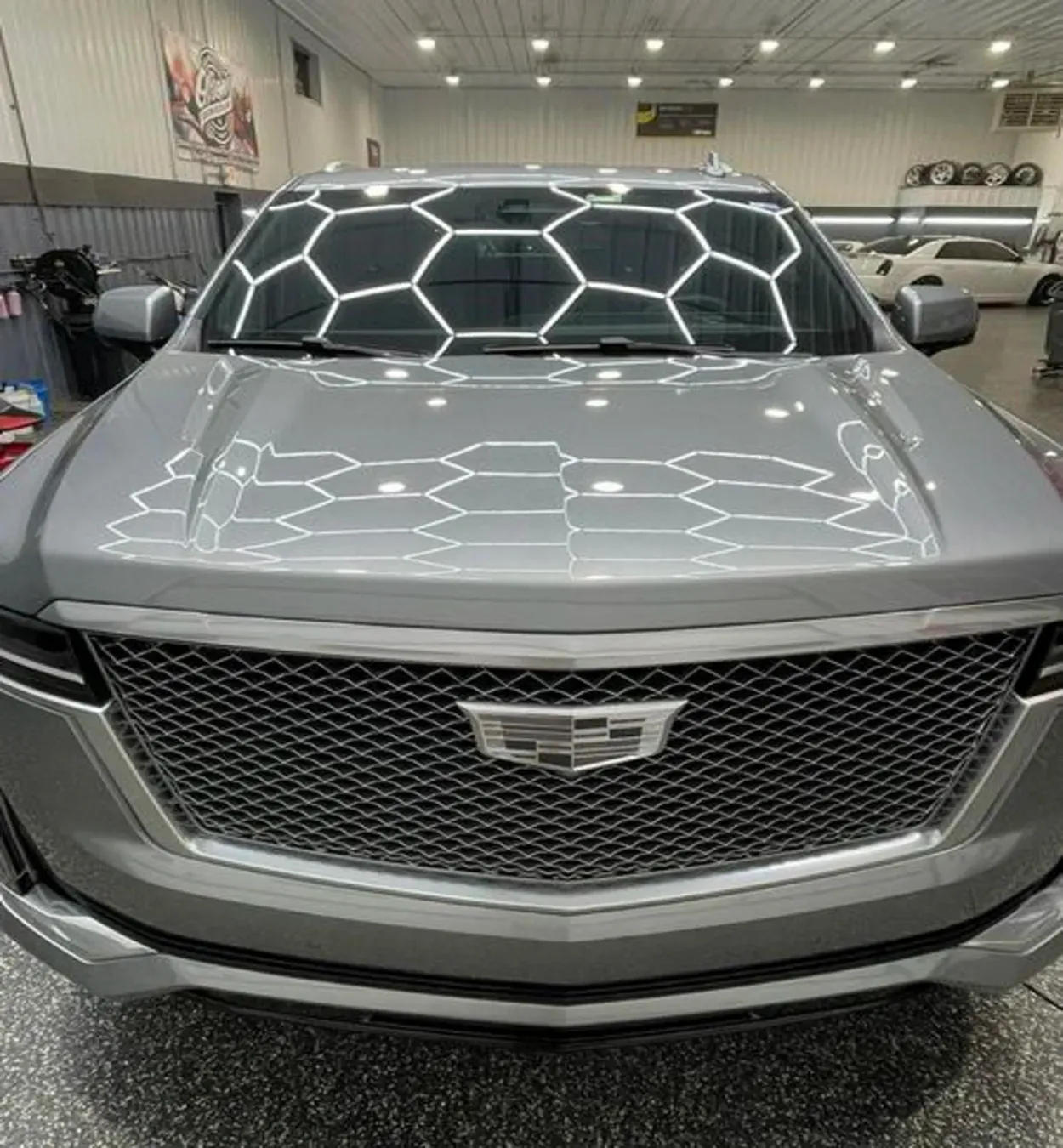
What Are Ceramic Coatings?
Ceramic coatings are liquid polymers applied to the exterior of your vehicle that chemically bond with the paint, creating a hydrophobic layer that repels water, dirt, and other contaminants. This results in a durable, long-lasting layer of protection that can last for years with proper maintenance. Think of it as a protective skin for your vehicle, safeguarding it from the elements while maintaining a shiny, glossy appearance.
How Ceramic Coatings Work
Ceramic coatings are typically formulated with silicon dioxide (SiO2), which forms a hard, durable surface, and titanium dioxide (TiO2), which provides exceptional UV protection. These ingredients combine to create a strong chemical bond that enhances the vehicle’s resistance to oxidation, and environmental contaminants. Additionally, the coating provides a sleek, shiny finish that enhances the car’s appearance.
Properties and Benefits of Ceramic Coatings
Ceramic coatings offer a wide range of benefits for vehicle owners who want to preserve the appearance and value of their cars. Some of the primary advantages include:
1. Durability
Ceramic coatings provide long-lasting protection against environmental damage. Unlike traditional waxes, which wear off after a few weeks, ceramic coatings can last for years with minimal upkeep. This makes them a more cost-effective solution in the long run.
2. Scratch Resistance
The hard surface created by the coating makes it more resistant to light scratches and swirl marks, which are common during car washing and regular use.
3. UV Protection
The coating helps protect your vehicle’s paint from fading due to prolonged exposure to the sun. UV rays can cause oxidation, which leads to dull, faded paint over time. Ceramic coatings provide a protective barrier that helps maintain the vibrancy of your car’s paint.
4. Water Repellency
The hydrophobic nature of ceramic coatings ensures that water beads up and rolls off the surface, making it easier to clean your car and preventing water spots from forming.
5. Enhanced Gloss and Appearance
A well-applied ceramic coating enhances the depth and gloss of your vehicle’s paint, giving it a showroom-quality finish that lasts.
6. Easy Maintenance
With the hydrophobic properties of ceramic coatings, your vehicle will require less frequent washing and detailing. Water and contaminants are repelled, making it easier to maintain a clean and polished look.
Hydrophobic Nature of Ceramic Coatings
One of the standout features of ceramic coatings is their hydrophobic nature. This property significantly transforms your car washing routine. When water touches a properly coated surface, it beads up and rolls off instead of settling into puddles or leaving water spots. This not only provides visual appeal but also helps carry away dirt and grime with each droplet that slides off, reducing the time needed to clean your vehicle. For car enthusiasts, this means less time scrubbing away at stubborn stains and more time enjoying a clean, protected car.
The hydrophobic effect also prevents water from bonding to the paint, protecting it against water stains and mineral deposits that can cause long-term damage.
Benefits of Ceramic Coatings for Vehicles
Ceramic coatings provide tangible benefits for vehicle owners, ensuring the longevity of their car’s appearance while protecting it from the elements. Here are some key reasons why ceramic coatings are an essential investment for your vehicle:
1. Improved Paint Durability
Research indicates that ceramic coatings can improve paint durability by as much as 50%, which means your vehicle will resist fading and damage from sun exposure far longer than untreated surfaces. This results in better long-term protection for your vehicle’s paint, keeping it vibrant and glossy.
2. Reduced Need for Waxing and Polishing
Many car enthusiasts report not needing to wax or polish their cars as frequently after applying ceramic coatings. The durable layer provides long-lasting protection, which means you won’t need to regularly reapply traditional wax or polish, saving both time and money.
3. Long-Lasting Gloss
Customer testimonials highlight how their vehicles maintain that showroom-quality gloss significantly longer compared to traditional methods. Ceramic coatings ensure that your car's finish remains shiny and protected, keeping it looking fresh for years to come.
4. Easy Cleaning and Maintenance
The smooth, slick surface created by the ceramic coating makes it harder for dirt, water, and other contaminants to stick. This makes it much easier to wash and maintain your car. With the added hydrophobic properties, your vehicle will stay cleaner for longer, reducing the time and effort needed for regular washes.
5. Protection Against Environmental Damage
Ceramic coatings provide essential protection against environmental contaminants like bird droppings, tree sap, road salts, and more. These substances can damage your vehicle’s paint over time, but with a ceramic coating, they won’t penetrate the surface, preventing oxidation and corrosion.
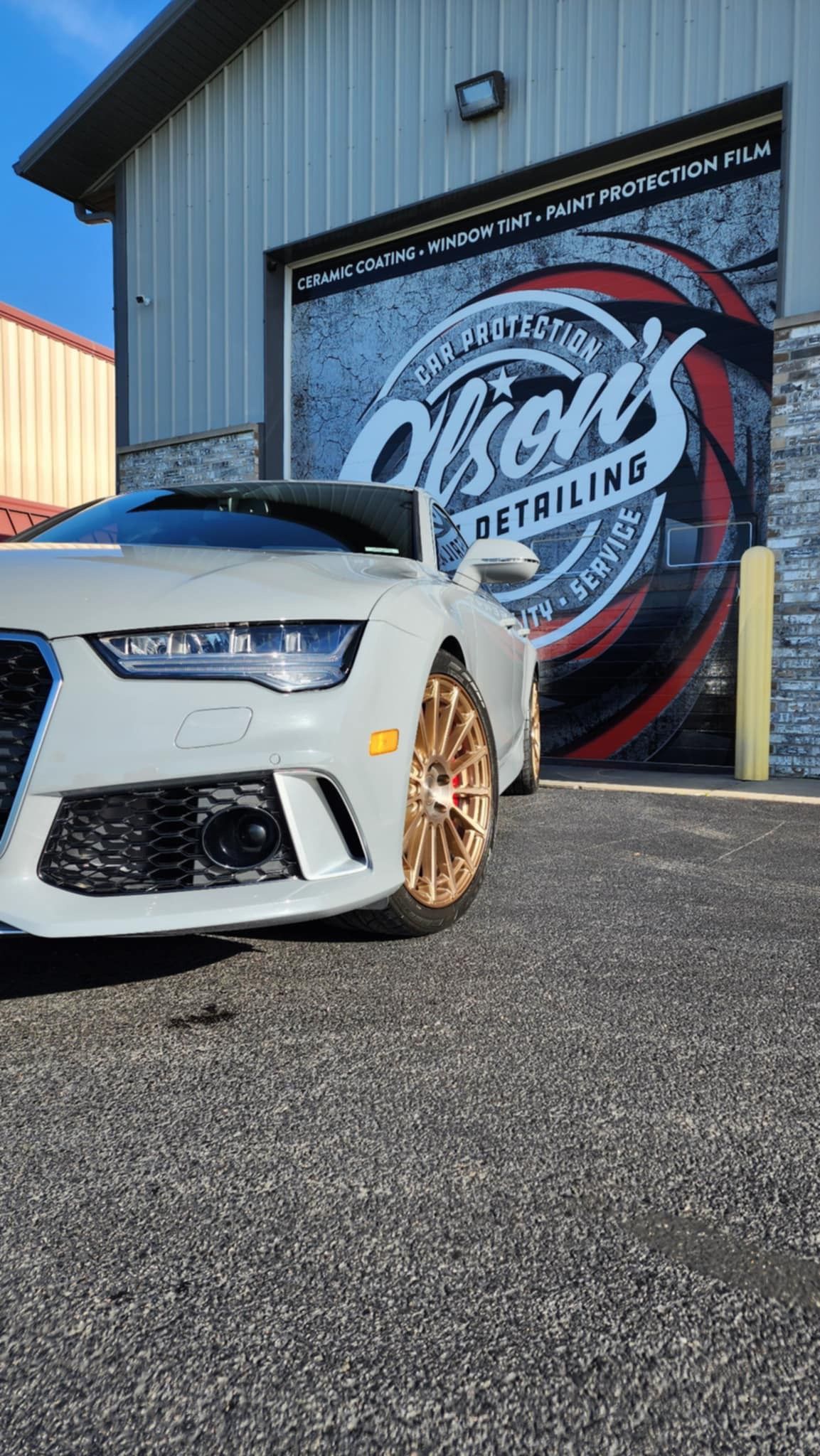
Advanced Techniques for Ceramic Coating Application
To achieve the best results from your ceramic coating, precise application methods are essential. The first step lies in meticulous surface preparation to ensure your vehicle’s paint is clean and free from contaminants.
Surface Preparation
Proper surface preparation is the foundation of a successful ceramic coating application. Start by thoroughly washing the car with a pH-neutral car shampoo to remove dirt and grime. This step ensures that no contaminants interfere with the bonding process of the coating. After washing, use a clay bar to eliminate any embedded contaminants that regular washing might have missed. A clay bar treatment helps lift particles from the paint, leaving it smooth and clean.
If you skip this step, even the tiniest dust particle can cause imperfections in the coating, resulting in an uneven finish or peeling. Think of preparation as laying down a solid foundation before building a home—without a proper base, the rest won’t hold.
Layering Methods
Layering techniques significantly enhance the durability and effectiveness of your ceramic coating. This method involves applying multiple coats of coating material, allowing each layer to cure thoroughly before proceeding with the next. By layering, you’re building a strong protective barrier that ensures your vehicle remains protected for a longer time.
Using high-quality infrared curing lamps during the layering process can expedite curing and improve adhesion between the layers. The layering method is similar to fortifying a fortress—each coat adds more durability and strength to the vehicle’s paint.
Airless Spray Systems
Airless spray systems are one of the most efficient methods for applying ceramic coatings evenly across surfaces. These systems avoid common issues like streaks or bubbles that can ruin the finish. However, mastering the technique requires practice and expertise. Consistency throughout the spraying process is crucial to avoid uneven application.
Airless spray systems are particularly useful when working on larger surfaces, such as the roof or hood of the car. They allow you to coat more area quickly while minimising waste.
Curing and Inspection
Once the ceramic coating has been applied, the curing process begins. Curing allows the coating to bond with the vehicle’s paint, creating a durable layer of protection. To ensure proper curing, the surface must be kept at the ideal temperature and humidity level. Some detailers use infrared lamps to help speed up the curing process, ensuring the coating bonds effectively.
After curing, conduct a thorough final inspection to ensure the coating has been applied evenly. If any streaks or high spots remain, use a microfiber cloth to correct the imperfections, restoring the smooth finish.
Emerging Technologies in Ceramic Coating
As technology continues to evolve, so does the field of ceramic coatings. One of the most exciting developments is the introduction of nanostructured coatings, which use nanoparticles to form a thinner, more efficient layer of protection. Unlike traditional coatings, which can be thicker and less uniform, nanostructured coatings provide enhanced durability while maintaining a sleek profile.
Graphene-Enhanced Coatings
Graphene-enhanced coatings are the next frontier in coating technology. Graphene, a relatively new material, is known for its strength and lightweight properties. When integrated into ceramic coatings, graphene enhances their durability, making the coating more resistant to wear and tear.
Overcoming Application Challenges
While ceramic coatings offer numerous benefits, the application process can come with challenges. Common issues include streaks, high spots, and improper curing. However, with the right techniques and controlled conditions, these challenges can be avoided.
Streaks and High Spots
Streaks and high spots are often caused by excessive product application or uneven spreading. To avoid these issues, apply the coating in thin, even layers and use high-quality applicators.
Insufficient Curing Time
If the curing process is rushed, the coating may not bond properly, leading to subpar results. Allow adequate curing time—typically 24-48 hours at room temperature—to ensure optimal bonding.
Surface Contamination
Surface contamination is another challenge during ceramic coating application. Dust and dirt can settle on an unprotected surface and diminish the efficacy of the coating. Ensure the vehicle is thoroughly cleaned and free from contaminants before applying the coating.
Final Thoughts: Future Trends in Ceramic Coating Technology
The future of ceramic coatings is bright, with innovations such as graphene-based coatings and eco-friendly solutions leading the way. As consumers prioritise sustainability, the development of water-based ceramic coatings with reduced volatile organic compounds (VOCs) is gaining momentum.
With continued advancements in coating technology, consumers can look forward to coatings that offer enhanced durability, easier maintenance, and environmental benefits. The future of ceramic coatings promises more robust, long-lasting protection, ensuring your vehicle stays in top condition for years to come.
